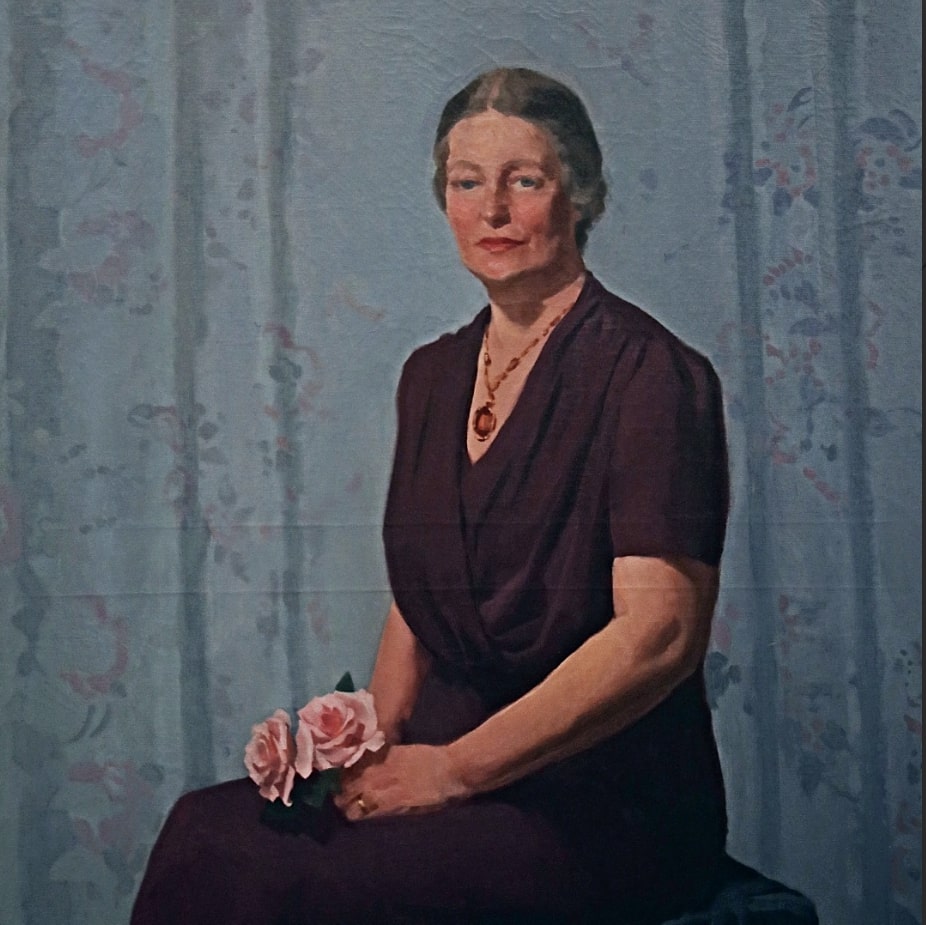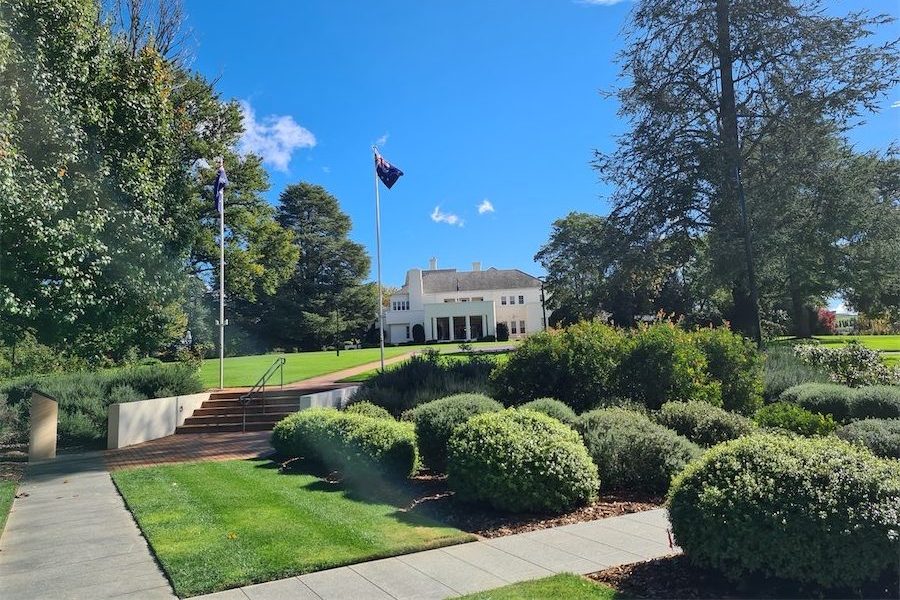
Meet Ivy Weber, born in Captains Flat and, among other things, the inaugural president of the Women for Canberra movement, who proved to be a “remarkably effective force for genuine Australian unity”. NICHOLE OVERALL shares a little history of this largely forgotten activist.
THE tall, striking woman stood in the 80-year-old, chandelier-adorned chamber, every eye – 65 pairs of them and all male – upon her.

“Very good-looking, with a pleasing voice and poise”, Ivy Lavinia Weber was the embodiment of her expressed view that “through voters of Australia, women can take their rightful and valuable place in our country’s future.”
On October 2, 1937, Mrs Weber had become the second woman elected to the Victorian Legislative Assembly, the first nationally as an independent and one of only three female parliamentarians around the country (the other two in WA).
As the new member for Nunawading, three years earlier held by the man destined to become Australia’s longest-serving Prime Minister, Robert Menzies, Ivy was considered “a woman of immense vitality”.
Twice-widowed – one husband lost to the Great War – a qualified “physical culturist” and determined champion of “women’s causes”, at 45 Ivy was also mother to 11.
Reluctant to describe herself as a feminist – even in the House referred to by the “courtesy title of gentleman” – she was both a product of her time, a period that encompassed two wars, the Depression and significant social upheaval, and a visionary for transformation.
Informed and articulate, during her campaign, Ivy’s critics referred to her as “the little ferret who was always nosing around doing everything”.
And 2023 marks 80 years since Ivy put herself forward as one of the first women to run for a seat in federal parliament – 1943, the first time this was possible.
While Ivy had won a hard-fought spot in the country’s second oldest state parliament (late 1856), her story began close to the place that upstaged Melbourne to become the permanent heart of the Commonwealth: Canberra.
Fifty kilometres south-east of the national capital, Captains Flat today is a tiny town of 600 or so souls. At the turn of the 20th century it was a booming mining metropolis – “one of the largest base metal mining fields in NSW, if not Australia”.
It was here, in its heyday, that Ivy was born in 1892 to school master John Filshie, appointed in 1886, and his wife Elizabeth, one of five kids and the only girl.
From the Flat to Dungog in the Hunter, Ivy eventually made for Sydney where she’d meet and marry the square-jawed, handsome Lt Thomas Mitchell in 1915.
After Tom’s death on the Western Front in 1917, Ivy, living in Melbourne with their baby son, married Australian heavyweight champion wrestler and founder of a health and strength college, Clarence Weber.
He was the widowed father of seven and the couple would have three more children.
Of the opinion women should put “marriage and motherhood before any other career”, Ivy nonetheless helped run the college up until Clarence’s untimely death in 1930.
Taking on a role with Berlei, the “undergarment” company, lecturing and giving “radio talks on physical culture”, Ivy’s increasingly diverse commitments ranged from organiser for the Country Party to the Queen Victoria Hospital and the National Council of Women.
A century ago women gained the right to stand for the Victorian Parliament, following NSW’s trailblazing in 1918 (although it was 1925 before Millicent Preston Stanley entered the hallowed halls, WA’s Edith Cowan the first woman to serve in any Australian Parliament in 1921).
It took a decade before Victoria saw the well-regarded Lady Millie Peacock secure the seat of Allandale in a 1933 by-election brought on by the death of the long-serving member (and three-time premier), her husband, Sir Alexander Peacock, who’d held it since 1889.
On Millie’s retirement in 1935, Ivy was the founding president of the Victorian League of Women Electors.
At Box Hill Town Hall on September 14, 1937, sporting a stylish hat and white gloves, Ivy launched her “Mother, Child, Family, Home and Health” campaign: “Support and vote for your woman candidate”.
Revealing her progressivism, Ivy called for national health and insurance schemes, free education and government-funded housing.
Maintaining a supportive relationship with the minority government of Country Party Premier Albert Dunstan, she also “lobbied for female representation on government boards, local councils and juries, and advocated a homemaker’s allowance for women with families”.
Twice re-elected, come 1943 women finally had the chance to run federally. As the inaugural president of the “Women for Canberra” movement, Ivy resigned her state seat to campaign for Henty.
Although she was unsuccessful, Dames Enid Lyons and Dorothy Tangney made history as the first female Federal Parliamentarians.
Making a pitch to return to state politics in 1945, Ivy was unable to repeat her previous success.
Undeterred, this “remarkably effective force for genuine Australian unity” continued to provide her “vision and zeal” to organisations including the Country Party, the anti-socialism movement and the Red Cross.
This incredibly full life came to a close in 1976 when Ivy was 84. In 2001 Ivy Lavinia Weber, of Captains Flat, was inducted into the Victorian Honour Roll of Women.
Today a graceful portrait of the only female member for Nunawading (Box Hill from 1945) hangs within the grand Victorian parliament in which she served the people – and the sisterhood – so well.
Who can be trusted?
In a world of spin and confusion, there’s never been a more important time to support independent journalism in Canberra.
If you trust our work online and want to enforce the power of independent voices, I invite you to make a small contribution.
Every dollar of support is invested back into our journalism to help keep citynews.com.au strong and free.
Thank you,
Ian Meikle, editor




Leave a Reply